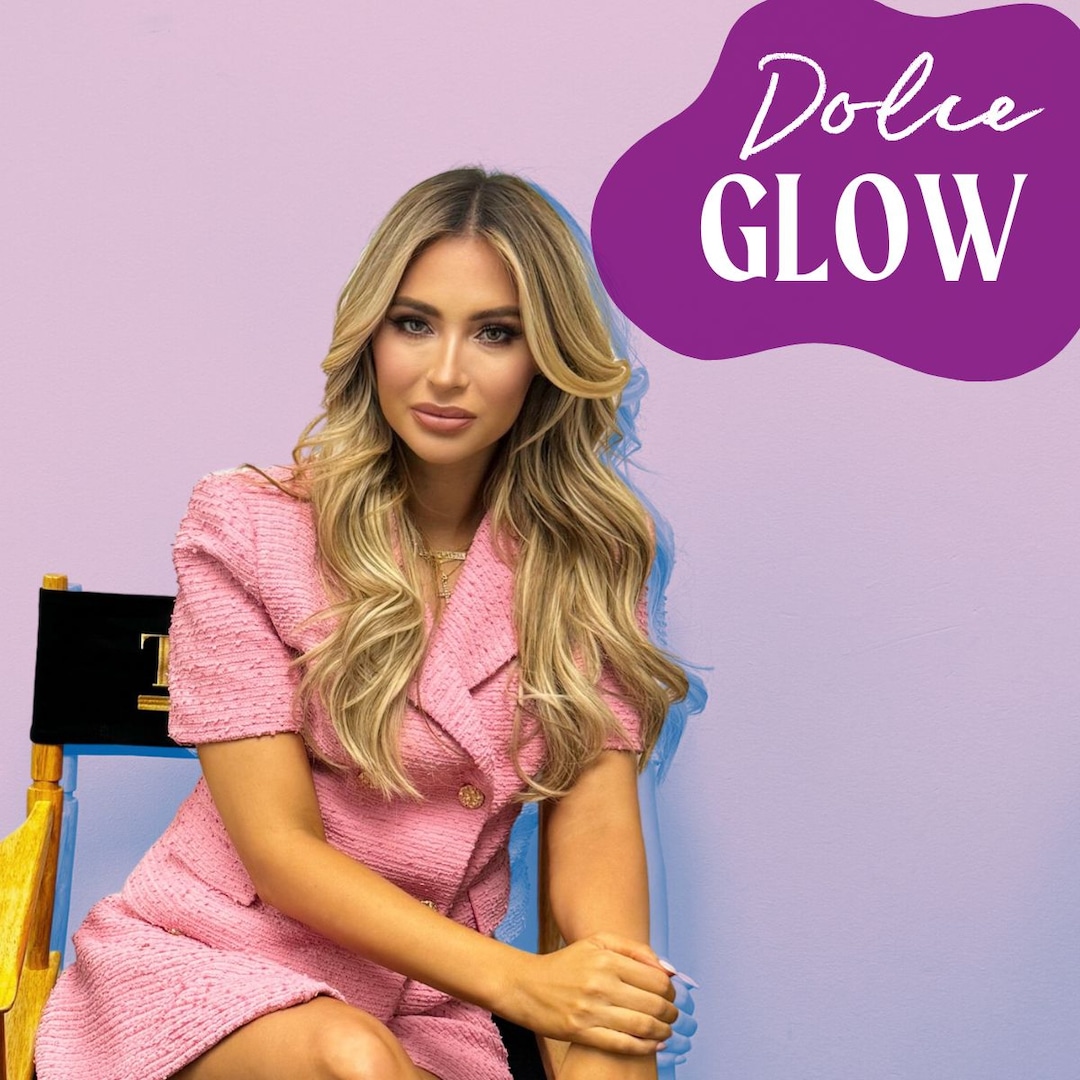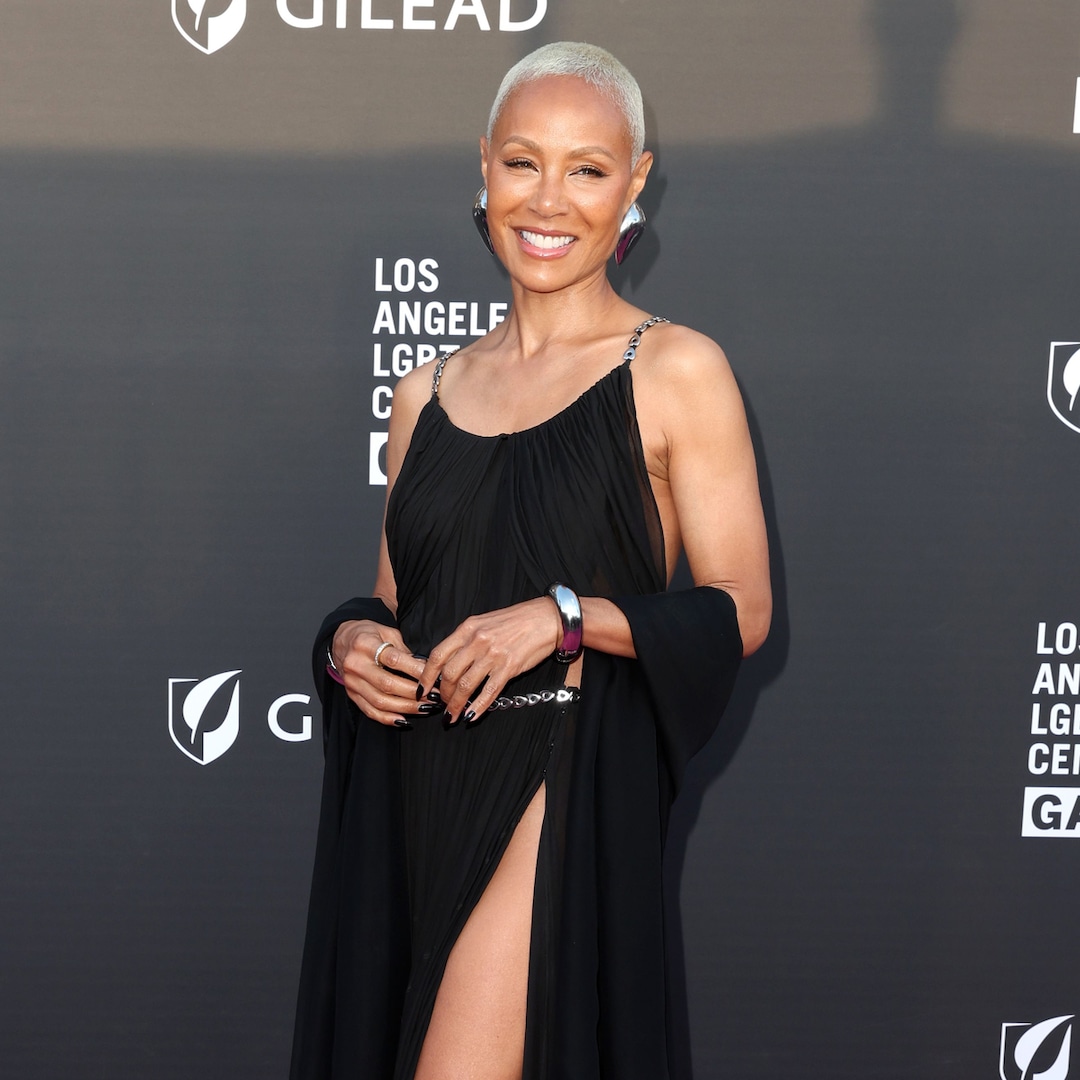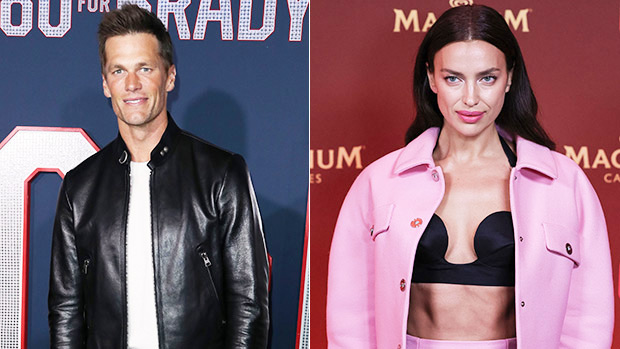Jon Ginoli Reflects On The ‘Joy’ Within Pansy Division’s ‘Undressed’ – Hollywood Life
View gallery
In some ways, the world has drastically changed since Pansy Division, the first openly gay rock band featuring predominantly gay musicians, released Undressed in 1993. “At the time we were forming the band and doing that first album,” says Jon Ginoli, Pansy Divison’s co-founder, when talking with HollywoodLife, “that was the era of if you were going to have gay sex, you have to use condoms, or else it could kill you.”
The group – vocalist/guitarist Jon Ginoli, bassist/vocals Chris Freeman, drummer Luis Illades and lead guitarist Joel Reader – will commemorate Undressed‘s pearl anniversary with a series of shows, including a performance at Chicago’s Beat Kitchen during Pride Weekend. It will be a victory lap for a group that not only has survived being a band for three decades but one that survived the callous cruelty of the AIDS epidemic.
12,000 Americans had died of the virus by the time Ronal Reagan said the word “AIDS” in 1985 (his press secretary famously laughed when asked if Reagan was monitoring the “gay plague”). By 1991, when the epidemic was over a decade old, nearly 750,000 people were living with HIV, per the CDC. By 1995, AIDS was the single greatest killer of men ages 25-44 in America, per NBC News. It was a dark time, one that was rife with homophobia, ignorance, and violence.
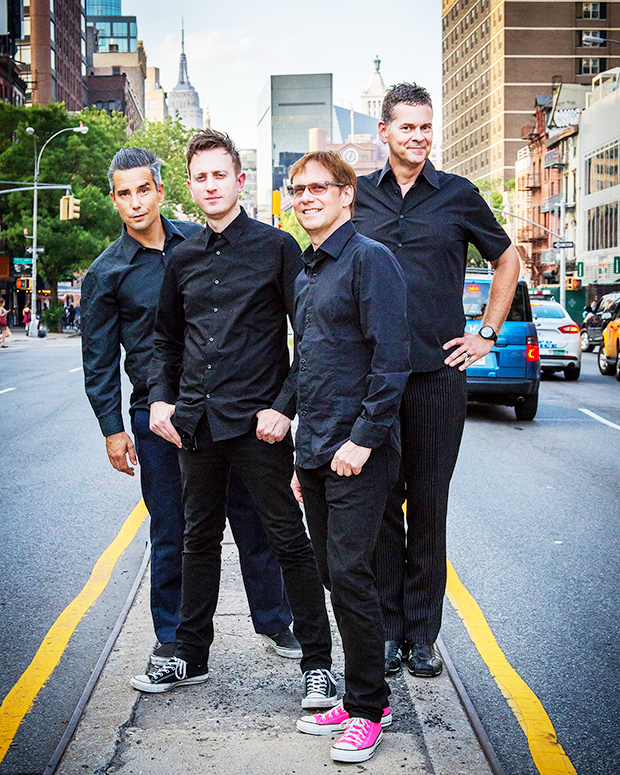
Yet, while Undressed reflects the time it was made, it is not a monochromatic portrait painted with dour tones. It’s horny. It’s happy. It’s self-deprecating. There’s the bouncy bassline of “Fem in a Black Leather Jacket.” Striking out with straight guys never sounded as charming as “The Story So Far,” while “Crabby” shows some problems when you do get lucky. There’s even “Rock & Roll Queer Bar,” the cover of The Ramones’ “Rock N’ Roll High School” that would make Johnny Ramone turn over in his grave. Undressed is fun from start to finish, and being jubilantly gay amid that time was probably the most punk thing Pansy Division could do.
“We wanted to have joy,” Ginoli tells HL about Undressed, “especially at a moment when we started, it was very fraught – politically — like things now, but different in other ways. We wanted to present the joyful side of it as opposed to the painful side, though that comes out at times.”
“Also, I thought,” he continues, “if I’m going to get on stage and be in front of people, I don’t want to do gay propaganda. I don’t want to do something fake. I wanted to sing about the things that I hadn’t heard being sung about in songs and present them in a very life-affirming way, at a time when a lot of people’s lives were being taken just because they were trying to love somebody.”
“That was part of our, I guess you could say strategy,” he says, “but part of our approach was just there’s a lot to celebrate even at a time when things looked dark.”
This isn’t to say that Jon, Chris, and their cadre of drummers (before finding Luis Illades in 1996) were Pollyannas, choosing to ignore what was happening around them. “We just tried to celebrate those things,” Jon says, “and there are more introspective songs on our albums.”
“They tend not to be the crowd-pleasers,” Ginoli says with a wry smile, “so they don’t get played as much as others. But I think overall, we have a balance. It’s not all about sex, it’s not all about joy, but we wanted to present things in a way that was a way we wanted to hear and that we really felt. I’m like, ‘Yes, there are all these problems we could sing about, and right now, we’re going to focus on the more joyful end of things.’ That was just an approach.”
In some ways, the world hasn’t changed that much since 1993. Gay rights continue to be under attack, with conservatives in state legislatures filing nearly 500 anti-LGBTQ+ bills, per the ACLU. In a time when aging rock musicians are angrily firing semiautomatic rifles at cases of beer because an international beverage conglomerate paid a trans TikToker to make a video, Undressed still has a radical edge to it. Somehow, it’s still edgy to be so pleasantly unrepentantly gay.
“I would rather not have us be this relevant for those reasons,” says Ginoli, “but yeah, just to be gay, just to be queer, it’s still a challenge to a lot of people in society, even though the acceptance is much greater than it was in the early nineties when we were starting out.”
Undressed continues to resonate with the youth, and Pansy Division has laid a foundation upon which queercore and modern queer punk proudly stand. And they still have a place alongside their progeny – not what many thirty-two-year-old bands can say. “I think that the first album holds up pretty well. I’m pretty happy with it,” Ginoli says when thinking about Undressed. “There’s a couple of songs which I will not name that I don’t think are quite as good as the rest, in retrospect. But the thing is, you also have to take chances, and if some of the chances aren’t quite as successful as others, then those are the risks you take. But a lot of the songs that we play to this day are on that album.”
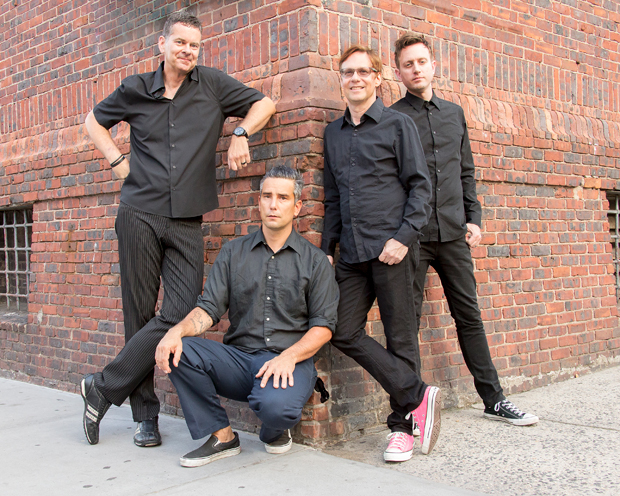
“One of the things about this album that really isn’t like our others is that the vocals are way out front,” he adds. “On the other albums, they’re more mixed in with the instruments more. But on the first album, I did not want people to miss what we were singing. Once people had an idea of what we were singing, they didn’t have to be so upfront. But that’s one of the things about the first album that I’m really proud of is that we pushed the message out there. I thought the music matched the message pretty well. It’s why I think the record holds up.”
“Remember,” he shares, “when you do your first album, you don’t know if anyone’s going to hear it. You don’t know what’s going to happen. You don’t know. When you make your second album, you have some idea of what people think of you or how much interest there is. Do you even get to do a second album? We didn’t know. So, we thought we’re just going to put into the first album all the things that we want to say on a certain level. We did that, and I can listen to it now and see the territory that it covers, the things that we sing about, and I’m pretty satisfied with that.
“We’re celebrating 30 years of being around, and we are celebrating Undressed,” Ginoli states. “We’re commemorating it, but we’re also celebrating it.”
There will be many fans, old and young, celebrating along with the band. Three decades after Jon found Chris and created the kind of gay punk rock music they wanted to hear, there are still young queer kids painting the Pansy Division logo on their battle vests. People are buying old Pansy Division 7″ off Discogs. They’re streaming Undressed — “Fem In A Black Leather Jacket” is the band’s most streamed song. “It’s the first song I wrote for the band, and I still think it’s the best one,” Ginoli tells HL about “Fem.”
“We’ve written so many songs that I’m really proud of, but that one really, that was the formative song,” he explains. “It’s like, what do I want to sing about? And it’s in there. It’s also really catchy, and many of our songs are, but there’s just something about that one that captures a feeling because it’s funny, sincere, and snarky at the same time. There’s humor in there, but it’s not jokey.”
“The interesting thing was that — I’m a Spotify user, and at one point a while back, maybe almost ten years ago, by far, at that time, the most played song of ours was the song ‘That’s So Gay’ from the album of the same name, which came out in 2009,” he says. “Our later stuff didn’t get as much notice as the early stuff in the nineties, so we were astonished that of all songs was the one that was way out ahead of the others. It’s since been overtaken.”
“But I think it’s just because of the title that people saw the title [‘That’s So Gay’] and passed that song around,” ass Ginoli. “Chris wrote the song because we would hear that phrase being used derogatorily, and we thought that is something we wanted to fight back against. That song is an angry song, but it’s funny too.”
That’s So Gay contains Pansy Division’s collaboration with Jello Biafra of the legendary punk band Dead Kennedys (and co-founder of Alternative Tentacles, the label that released some of those latter Pansy Division albums.) The documentary Pansy Division: Life In A Gay Rock Band features a moment when Jello said he “talked to all three members of Nirvana at once, and they have absolutely no problem with ‘Smells Like Queer Spirit.’”
“That’s an actual voicemail message,” says Ginoli, who still has the old answering machine micro-cassette with Jello’s message about the band’s “Smells Like Teen Spirit” cover. “We were trying to put this song out, which in retrospect, it’s not one of my favorite Pansy Division songs. It was from that moment when ‘Smells Like Teen Spirit’ was ubiquitous, so we were putting our spin on it, but that moment faded away. But we got Jello Biafra to ask Nirvana’s permission because he was MC’ing a benefit show against an anti-gay law in Oregon. That was a very nice convergence of people and issues.”
The band hasn’t played it since Kurt Cobain‘s passing in 1994. They also haven’t heard any reaction from Iggy Pop. When Undressed was released independently and somewhat primordially as a cassette, Ginoli used Gerard Malanga‘s 1971 nude photo of The Stooges‘ frontman as the artwork.
“I’ve never heard Iggy mention us,” Ginoli says with that smile of his. “We also were on that tribute album that came out in ’97 [Wee Will Fall: The Iggy Pop Tribute], which is actually, as tribute albums go, that is a pretty good one.”
“We’ve done a song, and then we ripped him off to use that cover image, the famous naked photo of Iggy from the early seventies, which we used on our demo tape,” explains Ginoli. “But then, when it came time to do our first album Undressed, a friend of mine posed nude instead so we didn’t have to get sued by Iggy. But no, never heard from him.”
There’s still time. Pansy Division plays three shows in June – at Minneapolis’ 7th Street Entry on the 15th, Milwaukee’s X-Ray Arcade on the 16th, and Chicago’s Beat Kitchen on the 17th – before hitting the Pacific Northwest in September before concluding the Undressed shows in Philly, Baltimore, and New York in November. The band is looking to reach 1,000 performances in its 30+ year career (they’re at 976), meaning Pansy Division will still go strong for a while.
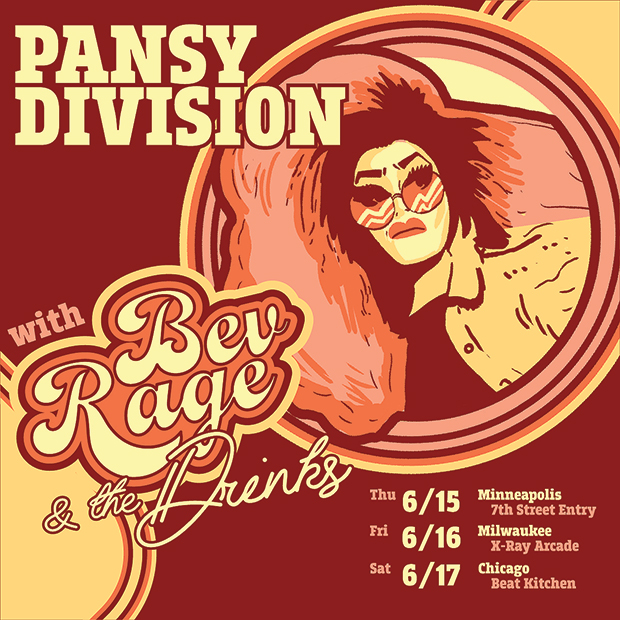
“You can never predict when you start a band how well it’s going to go, how long it’s going to last, or how many people actually get to hear you,” says Jon Ginoli when reflecting on Pansy Division’s legacy. “We have a lot of gratitude at this point. We always did. We didn’t expect things to happen. We knew that if things did happen, we had to go out and try to make them happen. That’s really a big part of why we’ve lasted. We keep plugging away, even if we don’t make records as often as we used to or tour as much as we used to. It’s still something that’s really important to our lives, though.”
“Undressed coming out was one of the things that led us to being a band full-time for at least five years,” he concludes. “That was a pipe dream. It’s like, ‘We’re going to have a band. We’re going to sing about being gay. We’re going to sing about sex and be uncensored, and this is going to be a job for us where we can actually quit our jobs and go on tour and make records all the time!’ That was not something we were counting on. That was best case scenario, and that’s what happened.”
For more information about Pansy Division, follow them online.
Click to Subscribe to Get Our Free HollywoodLife Daily Newsletter to get the hottest celeb news.
Check out our Latest News and Follow us at Facebook
Original Source

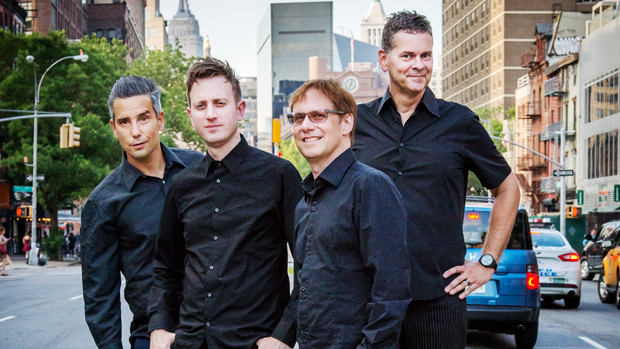
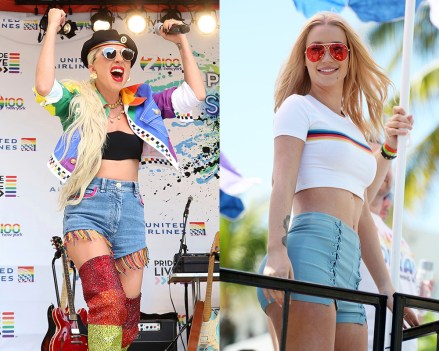
![Janelle Monae seen leading Pride Parade ad Grand Marshall in West Hollywood. 05 Jun 2022 Pictured: Janelle Monae. Photo credit: APEX / MEGA TheMegaAgency.com +1 888 505 6342 (Mega Agency TagID: MEGA865008_028.jpg) [Photo via Mega Agency]](https://hollywoodlife.com/wp-content/uploads/2020/06/Pride-Parade-Celebs-4.jpg?w=339)
![Paula Abdul seen as the LA Pride Grande Marshall. 12 Jun 2022 Pictured: Paula Abdul. Photo credit: APEX / MEGA TheMegaAgency.com +1 888 505 6342 (Mega Agency TagID: MEGA867797_001.jpg) [Photo via Mega Agency]](https://hollywoodlife.com/wp-content/uploads/2020/06/Pride-Parade-Celebs-3.jpg?w=305)
